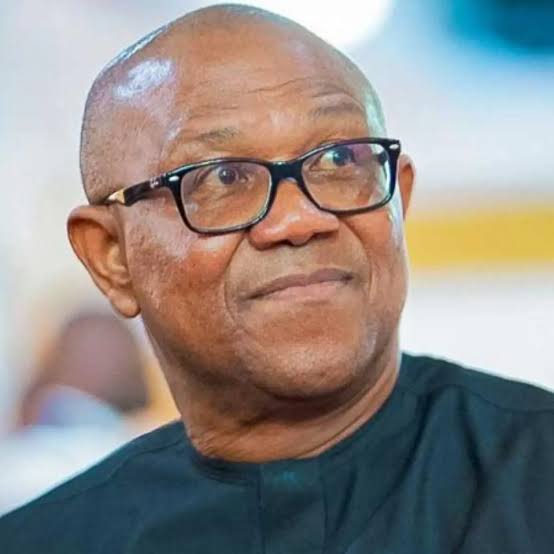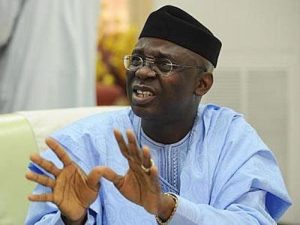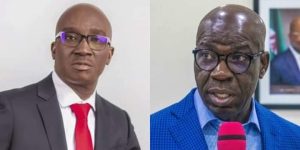PDP’s Olive Branch to Peter Obi: A Political Homecoming or Strategic Illusion?
On June 5, 2025, in the political heart of Awka, Anambra State, a significant overture was made that could reshape Nigeria’s democratic landscape—at least symbolically. The People’s Democratic Party (PDP), through its State Executive Committee (SEC) in Anambra, extended a heartfelt appeal to one of its most illustrious former sons: Mr. Peter Obi, the former governor of the state and 2023 presidential candidate under the Labour Party (LP).
The message was loud, strategic, and layered with political nostalgia: “Come home.”
This invitation was not a casual gesture—it was loaded with political arithmetic, ideological repositioning, and the unmistakable scent of 2027 presidential permutations. The communique, signed by PDP Anambra State Chairman Chidi Chidebe, positioned the party as rejuvenated, open-armed, and self-reflective. Whether Obi accepts the olive branch or not, this appeal opens a critical chapter in Nigeria’s volatile political evolution.
Peter Obi’s departure from PDP in 2022 to contest under the Labour Party’s banner was one of the most consequential political decisions in recent Nigerian history. It jolted the PDP’s foundations and redirected the attention of millions of disillusioned Nigerian youths toward a third-force movement previously dismissed as fringe. The 2023 election, though not won by Obi, demonstrated the potency of voter engagement outside the traditional power blocs.
Now, two years later, the very institution he once abandoned is extending a public hand of reconciliation. “Return home,” said the PDP. Not “join us,” but “return.” The semantics are critical—it positions the PDP not merely as a political entity but as a familial structure, one that claims spiritual ownership of Obi’s political origin. For those who understand Nigerian political culture, this is no ordinary invitation; it’s a recalibration of power narrative.
To understand why PDP is making this overture now, one must dissect the party’s recent trajectory. After its defeat in the 2023 presidential election, PDP entered a cycle of introspection and factional reconfiguration. Internal crises at both national and state levels, dwindling electoral influence, and a resurgent Labour Party in the Southeast forced the PDP to reassess its ideological and electoral relevance.
YOU MAY READ
BREAKING: Peter Obi Withdraws From All Political Coalitions Ahead of 2027 Elections
In Anambra, a state once considered a PDP stronghold, the party has lost significant ground to APGA, Labour, and even the APC in some quarters. Peter Obi, despite his absence from PDP, continues to command substantial grassroots loyalty, especially among the youth and middle-class voters disillusioned with the status quo.
The appeal for his return, therefore, is not only about emotional closure—it is strategic. PDP in Anambra and by extension the Southeast needs Peter Obi more than he needs them. His return would instantly reinvigorate the party’s image, attract floating voters, and reposition PDP as a serious contender for 2027.
But is this move a sign of political maturity or strategic desperation?
Peter Obi faces a unique dilemma. Since 2022, he has built an independent political identity centered on fiscal responsibility, youth engagement, and a modest lifestyle that sharply contrasts with the “old guard” image often attributed to both APC and PDP. His rise was built on rejecting the political establishment, not reintegrating into it.
A return to PDP, no matter how sincere the invitation, risks eroding the moral capital he has painstakingly amassed. The Labour Party may lack the deep-rooted structures of PDP, but it gave Obi the platform to define himself outside traditional frameworks. To return now would require delicate messaging and perhaps substantial guarantees of ideological alignment and structural reform within the PDP.
Moreover, Obi’s 2023 candidacy birthed a socio-political movement that is still in motion. The “Obidients,” as they are fondly called, view traditional parties with deep skepticism. For Obi to migrate back to the PDP, he would need to convince his base that it’s not a betrayal of ideals but a strategic alliance to rescue Nigeria.
The stakes are high.
Chidi Chidebe’s communique painted a picture of a “rejuvenated and restructured” PDP. But on the ground, the reality is more complicated. Factionalism, internal betrayals, poor electoral performance, and generational disconnect plague the party’s Southeast chapters. This vulnerability is what made the Labour Party such a formidable force in 2023.
In attempting to rebuild, the PDP Anambra chapter nominated Chief Clems Ezike as the new National Ex-Officio and lauded the recent NEC meeting for laying a new foundation. These moves, while encouraging, may not be enough to convince high-profile political figures like Obi without clear signs of transparency, reform, and policy vision.
There’s also the matter of younger aspirants within PDP. The appeal to Obi could be interpreted by them as a return to personality politics—an abandonment of the bottom-up rebuilding effort. Will the party create space for such an influential figure without reigniting internal turf wars?
This entire episode must be viewed through the lens of the 2027 general elections. By appealing to Peter Obi, the PDP is not just seeking local gains—it’s hinting at its readiness to retake national relevance. The calculus is straightforward: a coalition or reintegration of Peter Obi into PDP’s fold could be the nucleus of a formidable opposition front.
The 2023 elections showed that Nigeria’s youth population is no longer content with token representation. They want structural reform, transparency, and accountability. Obi, to many, embodies that hope. For PDP to merge with that vision, it must offer more than a political invitation—it must demonstrate ideological renewal.
There are murmurs within political circles that a broader alliance may be in the works—a grand opposition merger that could include Labour, PDP, and other progressive formations. If this is true, then the invitation to Obi is a test balloon. A trial reconciliation. A political whisper before the thunder.
PDP’s gesture, while noble on the surface, is not without risk. If Peter Obi declines the offer or worse, publicly rebukes it, it could damage the PDP’s image further, making the party appear desperate and outdated. Already struggling to connect with Nigeria’s politically restless youth, the PDP cannot afford another PR misstep.
On the other hand, if Obi accepts the invitation too quickly or without adequate consultation, he risks losing the trust of a loyal movement that saw him as the face of principled defiance against traditional political machinations.
This is a delicate courtship. A political dance where every step must be choreographed with caution and sincerity.
As expected, social media exploded with debates following the PDP’s public invitation. Supporters of Obi took to Twitter, Facebook, and WhatsApp groups to express cautious curiosity and, in some cases, outright resistance. Hashtags like #ObiNoGoBack, #ReturnOrRebuild, and #ObidientForever began trending.
Political analysts on TV and radio dissected the motives behind the invitation. Some called it “a masterstroke,” others a “trap.” Media houses across the country highlighted the development as a possible turning point in opposition politics.
Notably, several commentators emphasized the importance of dialogue and coalition-building in confronting the growing authoritarian tendencies within Nigeria’s ruling establishment. In that context, a PDP-Obi reunion—if well-managed—could be seen not as a betrayal of ideals but as a necessary compromise in a fragile democracy.
A Future-Oriented Perspective: What Could Reconciliation Look Like?
If Peter Obi were to seriously consider rejoining the PDP, several steps would need to happen to preserve the integrity of his movement and ideals:
- Structural Reforms in PDP: The party would need to publicly commit to internal democracy, transparent primaries, and a clear anti-corruption stance.
- Ideological Alignment: A joint manifesto or policy charter could outline shared goals on youth employment, education, security, and economic reform.
- Power Sharing and Inclusivity: The party must demonstrate readiness to include younger voices and LP loyalists in its leadership structure.
- Non-Transactional Alliance: The relationship must be built on mutual respect and vision—not just electoral convenience.
- Clear Communication with the Obidient Base: Obi would need to frame any move not as a capitulation but as a strategic consolidation of power for national transformation.
If these conditions are met, a PDP-Obi alignment could transcend its immediate electoral ambition and usher in a new political consciousness—one that blends experience with idealism, structure with spontaneity, and power with purpose.
The PDP’s invitation to Peter Obi is more than a local political development—it is a national moment. It forces us to rethink the binary politics that has defined Nigeria for decades. It challenges old alliances, questions ideological purity, and invites us to consider the cost of fragmentation in opposition ranks.
Will Peter Obi return to the PDP fold, or will he chart a new course, perhaps even leading a new coalition? Will the PDP reform itself enough to deserve his return, or will this invitation remain a poetic footnote in Nigeria’s political drama?
As the political clock ticks toward 2027, these questions will become increasingly urgent. What is certain, however, is that the lines are being drawn, the pieces are moving, and history is watching.
For now, all eyes are on Peter Obi.





